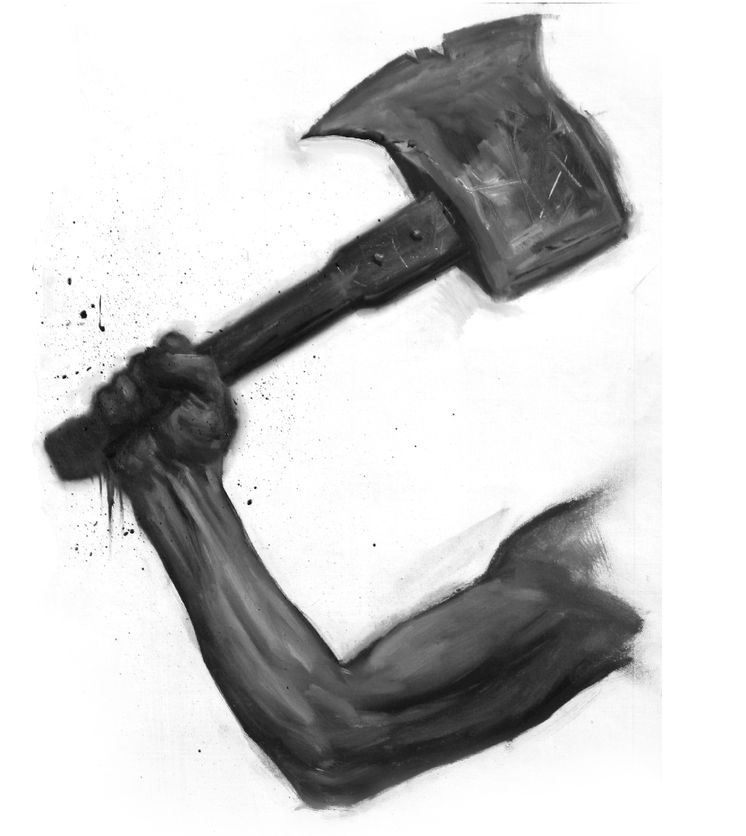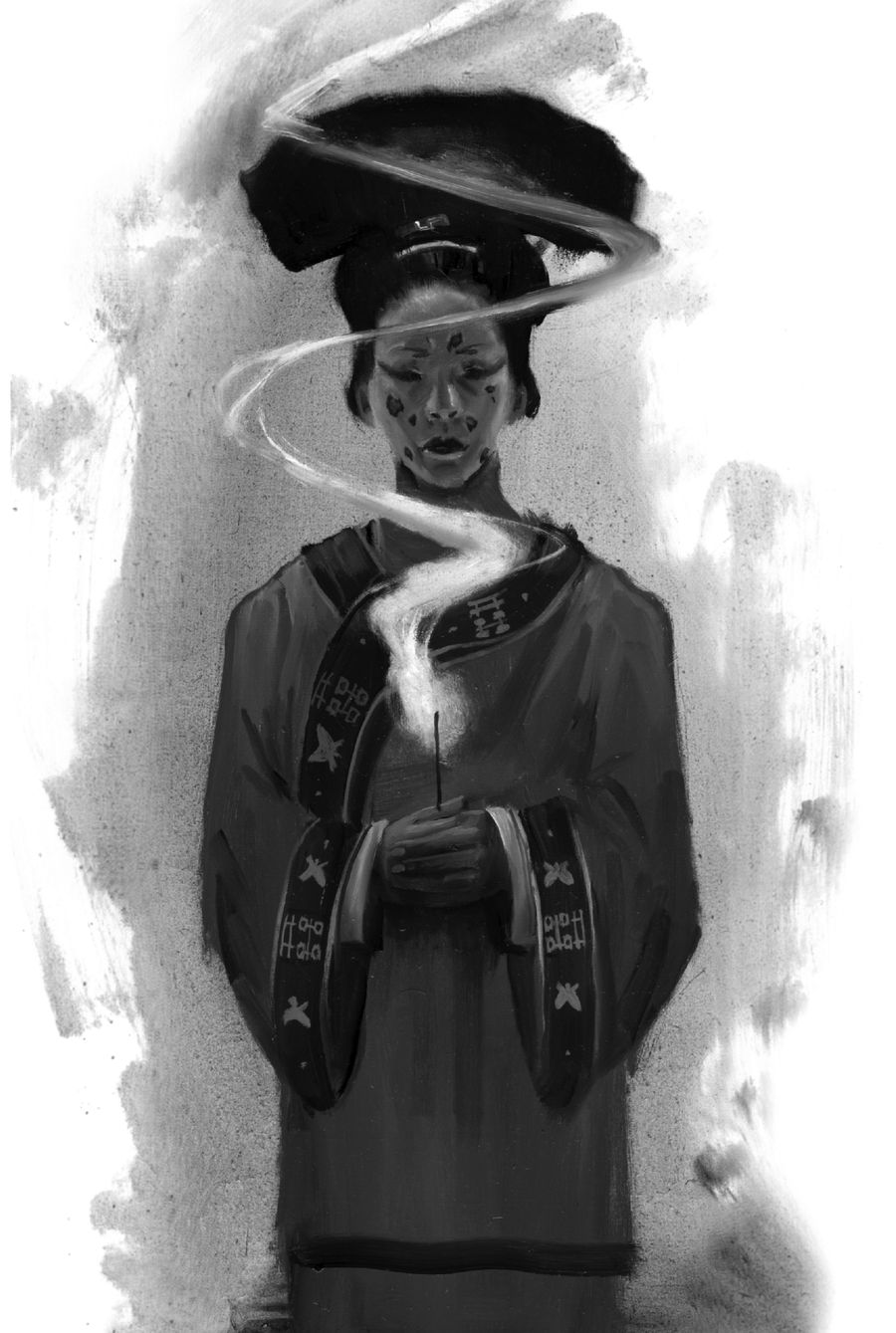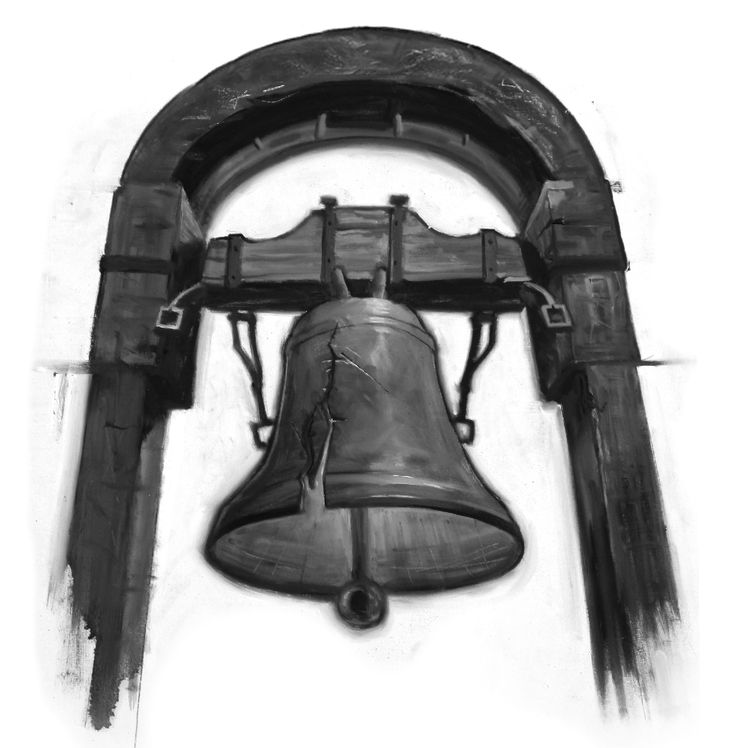More Bones (6 page)
Authors: Arielle North Olson

“How can you be so suspicious?” shouted the king. “Wasn't he the only man in the world who could cure me?”
“I am thinking only of your safety,” the vizier replied.
At first the King ignored the vizier. But each day, he worried more. He watched the physician for signs of betrayal. He saw none. Yet his fears grew.
One morning, after the physician sang a song in the king's honor, the king suddenly turned cold and cruel. He beckoned to his executioner and pointed to the old physician. “Off with his head,” he ordered.
The physician grew pale. “Is this the way you reward me for curing you?”
“If you could cure me by putting something in my hand, then you have the power to kill me,” the king said.
“Spare me, and Allah will spare you,” cried the physician. “Kill me and Allah will kill you.”
But the king would not listen.
The physician continued to beg for mercy, but finally he realized there was no hope. His legs felt weak and his hands were trembling, but he asked for two last favors.
“Will you grant me a day to arrange for my burial and to distribute my books of medicine?” asked the physician. “And will you grant the favor of keeping my most precious book in your royal library?”
“Only because you cured me,” said the king, and he sent the physician back to the inn, guarded by four strong men.
The next morning, the physician appeared at the palace looking old and weary, but he had accepted his fate. After kissing the ground before the king, he showed him the precious book.
“Why should I treasure it?” asked the king.
“It has special powers,” said the physician. “If you want my head to speak to you after you cut it off, turn three pages of this book and read the three lines you see there. Then I will be able to answer any question you ask.”
The king was astounded. He had never seen a severed head speak. He eagerly reached for the book.
“But first, my head must be pressed down on this tray on which I have sprinkled a special powder. It will stop the bleeding.”
The king didn't hesitate for a moment. He ordered the execution to begin. A kindly king might have turned away from such a horrible sight. But not this king. He could hardly wait to see a speaking head.
After the executioner had performed his grisly task, he pressed the physician's head on the powdered tray.
Suddenly the physician's eyes lit upâand the head spoke. “It's time to open the book.”
The king tried to turn the pages, but they were stuck together, so he licked his finger and tried again. Now he could turn the pages, but he found nothing written there.
“Turn some more,” said the head. The king licked his finger again, turning page after page. Still he could find no writing. He began to feel ill, so he asked his vizier to continue.
The vizier began to turn the pages. But so many were stuck, he had to lick his finger again and again. He, too,
 began to feel ill. He stopped and looked at his hand in horror. It was purple. He looked up and saw that the king was also turning purple, all the way up to his eyebrows.
began to feel ill. He stopped and looked at his hand in horror. It was purple. He looked up and saw that the king was also turning purple, all the way up to his eyebrows.

“This book is poisoned!” the vizier cried. But it was too late. Both the king and the vizier tumbled to the floorâdead.
The physician's head smiled. “Just punishment for tyrants,” it said, and the light went out of its eyes forever.
The Dangerous Dead
CHINA
Â
Â
Four travelers planned to spend the night in a roadside inn, but they arrived too late. The inn was full, and there was nowhere else to stay.
Â
Four travelers planned to spend the night in a roadside inn, but they arrived too late. The inn was full, and there was nowhere else to stay.
The innkeeper looked them over. He could see that they were not dressed in the manner of that region. Obviously they had come from afar. Who would know if something happened to them? Who would care?
The innkeeper tugged at his ear, pretending to think things over. “Maybe I can help you after all,” he said, “if you don't mind sleeping in a room with a corpse.”
The startled men looked at one another. But the night was damp and cold. They didn't want to freeze, so they accepted the innkeeper's offer.
“Wait here while I prepare things for you,” he said, and a few minutes later he led them down the path to the women's quarters. He placed a small oil lamp on the table. Its light was dim, but the men could see a coffin at the end of the room. “My daughter-in-law died today,” he said. “But you might as well use the sleeping couches here.”
The men were exhausted. They had been walking for days. They ignored the unpleasant smell that hung in the room, flopped down, and began to snoreâexcept for one. He was feeling uneasy about sharing a room with a corpse.
He lay awake, staring at the ceiling. He was still awake when the inn grew quiet. The stillness of midnight had descended. But now he heard a new sound, a faint rustlingâsomething was moving at the far end of the room. He was appalled to see that it was the corpse . . . rising up in the coffin.
The next thing he knew, she climbed out and slipped quietly over to the table. He closed his eyes down to slits, pretending to sleep. But he watched as she pulled forth a strange stick of incense and lit it with the lamp's flame. As soon as dark smoke began curling up, she turned her head away, keeping the incense at arm's length.
She crept up to the sleeping men and held the incense close to the nose of one snoring traveler. As he inhaled the poisonous vapors, his snoring lessened, then ceased. She proceeded to the second man. Then the third.
I'm next,
thought the fourth traveler. But when she brought the stick of incense up to his nose, he held his breath. After she turned away, he managed to breathe so shallowly that she did not hear him.
thought the fourth traveler. But when she brought the stick of incense up to his nose, he held his breath. After she turned away, he managed to breathe so shallowly that she did not hear him.

When she climbed back into the coffin, he quietly stretched out one foot and kicked the traveler nearest him. There was no response. He kicked again. Still no response.
But the corpse heard him. She rose out of the coffin and picked up the smoking incense. Again she held it up to his nose, but longer this time. When she finally moved away, he was about to explode. But he forced himself to breathe faintly.
The corpse must have thought she had killed all four travelers, because she began robbing them. She shoved the first one's body this way and that until she had found all the coins he was carrying, then she moved on to the next.
The fourth traveler knew it wouldn't be long before she came to rob him. He waited until she took her first handful of coins back to the coffin. Then he quietly slid his legs over the edge of the couch.
Before she turned around, he leaped up. But the corpse was at his heels by the time he raced out the door. He ran shrieking up the path to the inn . . . and right on past. He was afraid he couldn't awaken anyone in time to help. So down the road he went, faster than he had ever run in his entire life. He headed for the town, hoping to find safety there. At first he put some distance between himself and the corpse, but then he began to run out of breath. The corpse started to gain on him.
Just when he thought his legs were going to give out, he saw a monastery and pounded on the door. When no one opened it, he hid behind a tree.
That's when the corpse caught up with him. She darted to the right of the tree, and he dodged to the left. She darted to the left, and he dodged to the right. As they danced around, the tree creaked, bending slightly from side to side. Was it trying to block her?
So it wentâthe traveler scared, the corpse furiousâright to left, left to right until they were exhausted. They stood panting, one on each side of the tree. Then she made her move.
She held half of the poisonous incense in each hand and thrust herself directly at the tree. With one arm on each side, she thought she would surely catch him whichever way he went. But at that moment, a tree root tripped the traveler. He fell backward, out of her reach.
The corpse tried to pull away from the tree, but she couldn't. Her arms were stuck, entangled in the tree's bark. And on the ground, the incense lay smoldering.
The traveler arose, dazed. He saw that the corpse was no longer moving, but he wasn't sure why. Had the incense poisoned her? Or had the tree caught her? The traveler circled the tree, keeping his distance from the corpse. Then he started down the road. He knew he couldn't do anything for his three friends. They were dead. But he could tell the innkeeper about his daughter-in-law.
When the traveler appeared at the inn door, he was disheveled and trembling. The innkeeper seemed frightened to see him. Why hadn't this man suffered the fate of his three companions?
The traveler leaned against the door frame, exhausted. “Your daughter-in-law's body is stuck to a tree.”
“What do you mean?” the innkeeper cried. Had something gone wrong? Had he lost his partner in crime? “I want to see for myself,” he said. “Take me to her.”
The traveler sank down on the doorstep. What if the corpse rose up again? He shuddered so violently that his voice quivered. “You go,” he said.
The innkeeper kept asking, but the traveler refused to lead him to that terrible corpse.
“Then I must find her myself,” said the innkeeper. “Tell me the way.”
When the innkeeper reached the tree, he didn't see his daughter-in-law. He thought he had found the wrong treeâuntil he saw the edge of her robe and some long, black hairs sticking out of the bark. He watched in horror as they, too, disappeared, pulled into the tree. Now he knew. The tree had swallowed his daughter-in-law whole.
The Haunted Bell
SPAIN
Â
Â
Everyone in the Spanish village was frightened by the bell hanging in the marketplace. It was rusty and cracked and sounded so terrible that its bell rope was allowed to rot away. But that didn't stop it from ringing. It spooked the villagers by ringing itself. Even worse, its odious clanking meant trouble. Murders, floods, plagues, wars. Every time that bell rang, it brought forth disaster.
Â
Everyone in the Spanish village was frightened by the bell hanging in the marketplace. It was rusty and cracked and sounded so terrible that its bell rope was allowed to rot away. But that didn't stop it from ringing. It spooked the villagers by ringing itself. Even worse, its odious clanking meant trouble. Murders, floods, plagues, wars. Every time that bell rang, it brought forth disaster.
No one dared to take it down. One man had tried. But the moment his hands touched the bell, they stuck to the metal. Sparks flew. He writhed in agony until he finally managed to break free.
The bell had hung in the marketplace for as long as anyone could remember, but few knew its history. Those who did whispered the story behind closed doors.

It all began when a cruel baron lived in a castle high on a cliff above the village. He ordered his blacksmith to make a special suit of armor. But he knew that the blacksmith hated himâand so did everyone else.
The baron was very suspicious. He didn't know if he could trust the blacksmith to fashion armor strong enough to withstand a sword's blow. Nor did he trust him to make it so that rust could never take away its protective power.
When the blacksmith carried the armor into the great room of the castle, the baron inspected each piece. He put on the helmet and closed its visor, peering out through the holes. Then he pulled it off and thumped the chest plate with his fist. He felt the thickness of the metal plates that would cover his feet, and he saw how smoothly the metal gauntlets would flex when his hands were inside. He fingered the black plume atop the helmet and decided the armor would do. Then he dismissed the blacksmith with a wave of his hand.
Other books
The Bone Artists by Madeleine Roux
The Outlaw's Bride by Catherine Palmer
Inseparable by Brenda Jackson
Maid For The Tycoon: A BWWM Billionaire Romance by Lacey Legend
Empyrion I: The Search for Fierra by Stephen Lawhead
Esher: Winter Valley Wolves #7 by V. Vaughn, Mating Season
Nivel 5 by Lincoln Child Douglas Preston
Linna : Historical Romance (The Brocade Collection, Book 5) by Jackie Ivie
Visible Threat by Cantore, Janice
Dead Ends by Paul Willcocks
